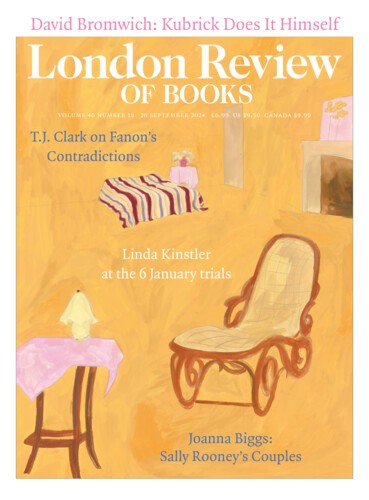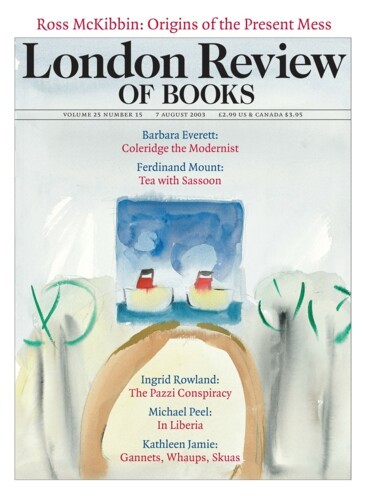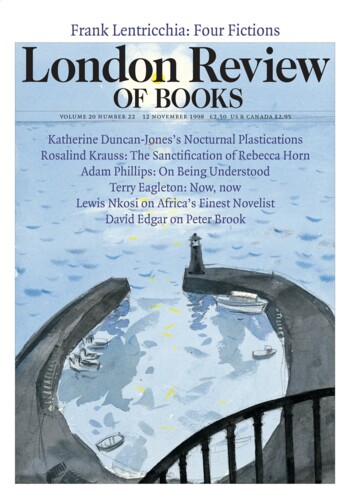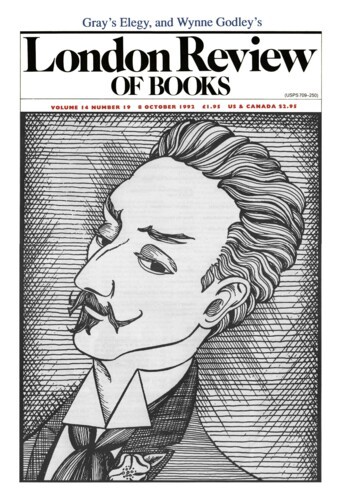Helen King
Helen King is Wellcome Trust Research Fellow in the Departments of Classics and History at the University of Reading. She is the author of Hippocrate’s Woman: Reading the Female Body in Ancient Greece, published by Routledge.
Worrying Wives: The Invention of Sparta
Helen King, 7 August 2003
As one of my former students once wrote: ‘The Spartans were great worriers.’ Spartan men certainly had a lot to worry about: at the age of seven they were taken from their homes and put into military barracks, where regular anal sex may have been intended to make them grow up to be strong soldiers; once married, they could visit their wives only surreptitiously; they were...
That Stupid Pelt: Wolf’s retelling of Medea
Helen King, 12 November 1998
Recent interpretations of Medea have tended to focus on issues of gender and race, portraying her either as a feminist challenging Jason’s misogyny, or as a freedom fighter on behalf of the oppressed Colchian immigrants in Corinth. In what remains the best-known version of her myth, the one created by Euripides in 431 BC, her actions turn out to be as violent and tyrannical as those of her oppressors, as she kills her own children in a quest for revenge. Modern productions have tried to provide a reading of the play that makes sense of her appalling crime.
In praise of Geoffrey Lloyd
Helen King, 8 October 1992
Geoffrey Lloyd has held the position of Professor of Ancient Philosophy and Science in the University of Cambridge since 1985. The creation of this personal chair not only honoured a great and generous scholar, but also gave a much-needed boost to the growing interest in ancient science: a subject which, over the last two centuries, had been pushed to the margins of Classical scholarship while simultaneously being eclipsed by the rise of modern science. As Lloyd points out, the antipathy between the Classics and the sciences is such that Latin and Greek have long been the traditional escape routes from the sciences at school.
Pieces about Helen King in the LRB
Some girls want out: spectacular saintliness
Hilary Mantel, 4 March 2004
We are living through a great era of saint-making. Under John Paul II an industrial revolution has overtaken the Vatican, an age of mass production. Saints are fast-tracked to the top, and there...
Women at the Mercy of Men: Greek Gynaecology
Simon Goldhill, 4 March 1999
There is a disease which affects young girls, particularly around the onset of menstruation. It is known colloquially as ‘the horrors’, and its symptoms are evident. The disease makes...
Read anywhere with the London Review of Books app, available now from the App Store for Apple devices, Google Play for Android devices and Amazon for your Kindle Fire.
Sign up to our newsletter
For highlights from the latest issue, our archive and the blog, as well as news, events and exclusive promotions.




